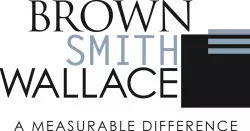The Securities and Exchange Commission (SEC) is asking for public comments on several key changes to its rules by the first quarter of 2016. Although its proposal on intrastate crowdfunding has garnered significant attention, the comment deadlines for five other regulatory proposals also are in early 2016. Here's a heads-up on what regulatory changes are currently in the works.
Easing the requirements for state-based crowdfunding
The SEC's comment period on Release No. 33-9973, Proposed Rule Amendments to Facilitate Intrastate and Regional Securities Offerings, expired on January 11. If approved, this proposal would relax some of the requirements for state-based crowdfunding and create a new registration exemption in Rule 147 of the Securities Act of 1933 to allow companies to market "intrastate" offerings.
To help smaller companies raise capital, an increasing number of states are adopting intrastate investment laws. The SEC's proposal would lift certain restrictions on marketing those deals and raise the investment limit from $1 million to $5 million per year from investors across multiple states, without an accreditation requirement.
Other SEC proposals
Crowdfunding is a hot topic. But the SEC has five other proposals in the pipeline that, if approved, would affect some public companies and their investors:
1. Release No. 33-9922, Open-End Fund Liquidity Risk Management Programs; Swing Pricing; Re-Opening of Comment Period for Investment Company Reporting Modernization Release. This proposal would impose new requirements on mutual funds and exchange-traded funds to manage liquidity risk and provide additional disclosures. It would also permit certain funds to use "swing pricing." This occurs when the net asset value of a fund's shares are adjusted to pass on the costs from shareholder purchase or redemption activity to the shareholders associated with that activity. Comments were due on January 13.
2. Release No. 34-76620, Disclosure of Payments by Resource Extraction Issuers. Publicly traded mining, oil and gas companies would be required to disclose payments made to the federal government and foreign governments for the commercial development of oil, natural gas or mineral resources under this controversial proposal. These payments would include:
- Taxes,
- Royalties,
- Fees, including license fees,
- Production entitlements,
- Bonuses,
- Dividends, and
- Infrastructure improvements.
These disclosures are mandated under the Dodd-Frank Act. The SEC initially adopted an early version of this proposal in August 2012, but it was vacated by the U.S. District Court for the District of Columbia in July 2013.
This time around, the SEC implemented a somewhat unusual two-stage comment period for this revised proposal. The SEC said comments submitted during the second round can respond only to issues raised during the first round. The deadline for initial comments was January 25. The deadline for replying to the first round of comments is February 16.
3. Release No. 34-76624, Establishing the Form and Manner With Which Security-Based Swap Data Repositories Must Make Security-Based Swap Data Available to the Commission. This narrow-scope proposal sets forth how repositories for security-based swap data must make the data available to the SEC. It would require repositories to report information electronically, using either the Financial products Markup Language (FpML) or the Financial Information eXchange Markup Language (FIXML) to help the SEC accurately analyze the data provided by a single repository or aggregated by multiple repositories. Comment deadline: February 22.
4. Release No. 34-76474, Regulation of NMS Stock Alternative Trading Systems. Under this proposal, the SEC would require public companies to implement a new disclosure regime for alternative trading systems (ATSs) that trade stocks on the National Market System (NMS). This includes so-called "dark pools" that trade NMS stocks but don't publicly display quotations in the consolidated quotation data.
Advances in technology have made ATSs increasingly popular, especially for institutional investors looking to trade large blocks of stock that might flood the market. Today, ATSs account for approximately 15.4% of the total dollar volume in NMS stocks and trade in a manner similar to registered national securities exchanges, such as the New York Stock Exchange and NASDAQ.
Unlike registered national securities exchanges, however, there is limited public information available to market participants about the operations of ATSs. The proposal would require operators of an ATS and their affiliates to disclose information on their activities and manner of operations. Comment deadline: February 26.
5. Release No. IC-31933, Use of Derivatives by Registered Investment Companies and Business Development Companies. This proposal would limit the use of derivatives by registered investment companies and require them to implement new risk-management practices. The rule covers business development companies, exchange-traded funds, mutual funds and closed-end funds. It would limit the amount of leverage a fund may obtain through derivatives transactions, require funds to manage the risks associated with derivatives by maintaining a certain amount of "qualifying coverage assets" and, for some funds, mandate a formalized derivatives risk management program. Comment deadline: March 28.
There's still time for you to provide feedback on the SEC proposals with comment periods ending in February and March.
The content of this article is intended to provide a general guide to the subject matter. Specialist advice should be sought about your specific circumstances.

